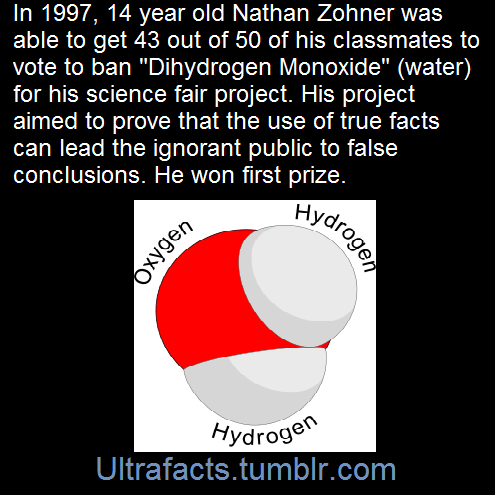5 Things You Didn’t Know About... Concorde
5 things you didn’t know about... Concorde

Credit: British Airways
1. Operated by British Airways and Air France, Concorde went into operation in 1976, following 5,000 hours of flight testing. Seating 100 passengers, it catered to the privileged or business traveller. Concorde was withdrawn from service in 2003, after 27 years.
2. The most popular route for the British carrier was from London Heathrow to New York JFK in just three hours and 20 minutes. Cruising at Mach 2.02, passengers experienced heights of 60,000ft, a vantage point from which they could see the curvature of the Earth below and dark skies above at midday.
3. The four Olympus 593 engines that powered Concorde were twin spool turbojets.
4. The materials used for Concorde’s structure needed to withstand temperature extremes – subsonic speeds, the aircraft fuselage would experience lows of -35°C, but at Mach 2 the temperature reached 127°C at the nose.
5. Concorde’s long, pointed nose cone played a key role in landing. Formed of resin-bonded glass fibre, as metals would interfere with the signals detecting storm clouds, the hydraulically powered nose cone could be moved independently to an angle of 12.5° on landing, allowing the pilot to see the approaching runway.
To find out more see page 60 of the June issue of Materials World or visit http://bit.ly/2qDPjJC.

More Posts from T-sci-eng and Others

The dihydrogen monoxide hoax involves calling water by the unfamiliar chemical name “dihydrogen monoxide” (DHMO), and listing some of water’s effects in an alarming manner, such as the fact that it accelerates corrosion and can cause severe burns. The hoax often calls for dihydrogen monoxide to be regulated, labeled as hazardous, or banned. It illustrates how the lack of scientific literacy and an exaggerated analysis can lead to misplaced fears.
The hoax gained renewed popularity in the late 1990s when a 14-year-old student collected anti-DHMO petitions for a science project about gullibility. The story has since been used in science education to encourage critical thinking and avoid the appeal to nature.
Forty-three students favored banning DHMO, six were undecided, and only one correctly recognized that ‘dihydrogen monoxide’ is actually plain old water.
Here’s the information he gave the students:
Dihydrogen monoxide is colorless, odorless, tasteless, and kills uncounted thousands of people every year. Most of these deaths are caused by accidental inhalation of DHMO, but the dangers of dihydrogen monoxide do not end there. Prolonged exposure to its solid form causes severe tissue damage. Symptoms of DHMO ingestion can include excessive sweating and urination, and possibly a bloated feeling, nausea, vomiting and body electrolyte imbalance. For those who have become dependent, DHMO withdrawal means certain death.
Dihydrogen monoxide:
is also known as hydroxl acid, and is the major component of acid rain.
contributes to the “greenhouse effect.”
may cause severe burns.
contributes to the erosion of our natural landscape.
accelerates corrosion and rusting of many metals.
may cause electrical failures and decreased effectiveness of automobile brakes.
has been found in excised tumors of terminal cancer patients.
Contamination is reaching epidemic proportions!
Quantities of dihydrogen monoxide have been found in almost every stream, lake, and reservoir in America today. But the pollution is global, and the contaminant has even been found in Antarctic ice. DHMO has caused millions of dollars of property damage in the midwest, and recently California.
Despite the danger, dihydrogen monoxide is often used:
as an industrial solvent and coolant.
in nuclear power plants.
in the production of styrofoam.
as a fire retardant.
in many forms of cruel animal research.
in the distribution of pesticides. Even after washing, produce remains contaminated by this chemical.
as an additive in certain “junk-foods” and other food products.
Companies dump waste DHMO into rivers and the ocean, and nothing can be done to stop them because this practice is still legal. The impact on wildlife is extreme, and we cannot afford to ignore it any longer!
The American government has refused to ban the production, distribution, or use of this damaging chemical due to its “importance to the economic health of this nation.” In fact, the navy and other military organizations are conducting experiments with DHMO, and designing multi-billion dollar devices to control and utilize it during warfare situations. Hundreds of military research facilities receive tons of it through a highly sophisticated underground distribution network. Many store large quantities for later use.
Source: [x]
Click HERE for more facts




Elevated Bus That Drives Above Traffic Jams

Fibonacci trefoil
© Rafael Araujo

Here’s every total solar eclipse happening in your lifetime. Is this year your best chance?
On Aug. 21, a total solar eclipse will be visible from the continental United States. It’ll be the first to traverse coast to coast in nearly a century. Learn more about past and future eclipses: See full graphic.

The simple physics behind a Fidget Spinner
When you want something to spin for a really long time you need to make sure that the friction does not slow it down.

And we can do this by adopting ball bearings. This is so because friction offered due to rolling is much smaller than due to sliding.

And many Fidget spinners indeed use ceramic ball bearings to keep them spinning for a long time. **
Mass Distribution
The next most crucial component is the Angular Momentum. Angular momentum is equal to the product of rotational velocity and the moment of inertia.

And by distributing more mass towards the edge, the fidget spinner gains high moment of inertia keeping it spinning longer.
That’s why the spinners have that weird peculiar shape.
But, Why do they feel alive ?

The angular momentum of a fidget spinner happens to point outwards from the spinner’s center.
And so to change the direction of the momentum — rotating the spinner with your fingers — you must apply a force. You push on the spinner, and the spinner pushes back on you.
That’s why a fidget spinner feels like it fights you, like it’s alive.
- Nerdist
A very fascinating toy nevertheless!
** Spin Test : Ceramic Vs Steel ball bearings
*** Fidget spinner trick shots
Physical Science...In Space!
Each month, we highlight a different research topic on the International Space Station. In May, our focus is physical science.

The space station is a laboratory unlike any on Earth; on-board, we can control gravity as a variable and even remove it entirely from the equation. Removing gravity reveals fundamental aspects of physics hidden by force-dependent phenomena such as buoyancy-driven convection and sedimentation.

Gravity often masks or distorts subtle forces such as surface tension and diffusion; on space station, these forces have been harnessed for a wide variety of physical science applications (combustion, fluids, colloids, surface wetting, boiling, convection, materials processing, etc).

Other examples of observations in space include boiling in which bubbles do not rise, colloidal systems containing crystalline structures unlike any seen on Earth and spherical flames burning around fuel droplets. Also observed was a uniform dispersion of tin particles in a liquid melt, instead of rising to the top as would happen in Earth’s gravity.

So what? By understanding the fundamentals of combustion and surface tension, we may make more efficient combustion engines; better portable medical diagnostics; stronger, lighter alloys; medicines with longer shelf-life, and buildings that are more resistant to earthquakes.

Findings from physical science research on station may improve the understanding of material properties. This information could potentially revolutionize development of new and improved products for use in everything from automobiles to airplanes to spacecraft.
For more information on space station research, follow @ISS_Research on Twitter!
Make sure to follow us on Tumblr for your regular dose of space: http://nasa.tumblr.com


A portal to another universe ?
That my dear friends is a CT scan machine. Stripped off all the body parts, you can see clearly see what goes on inside.
A computerized tomography (CT) or computerized axial tomography (CAT) scan combines data from several X-rays to produce a detailed image of structures inside the body.

CT scan of Brain
Pretty cool, don’t you think ?
Extras
Difference between MRI and CT scan
Why dont you spin the patient instead ? - Awesome reddit thread
Better quality gifs : here
Source Video: Micheal Jonnson

Nontoxic underwater adhesive could bring new surgical glue
A nontoxic glue modeled after adhesive proteins produced by mussels and other creatures has been found to out-perform commercially available products, pointing toward potential surgical glues to replace sutures and staples.
More than 230 million major surgeries are performed worldwide each year, and over 12 million traumatic wounds are treated in the United States alone. About 60 percent of these wounds are closed using mechanical methods such as sutures and staples.
“Sutures and staples have several disadvantages relative to adhesives, including patient discomfort, higher risk of infection and the inherent damage to surrounding healthy tissue,” said Julie Liu, an associate professor of chemical engineering and biomedical engineering at Purdue University.
Most adhesives do not work well in moist environments because water interferes with the adhesion process. While developing adhesives that overcome this problem is challenging, glues for medical applications must meet an additional requirement: they must be nontoxic and biocompatible, as well.
Read more.


It’s easy: Form a triangle, then a hexagon, then a bicycle wheel
This is the general mechanism on how a spider spins its web (talk about engineering, right?). When an insect gets caught in its web, the vibrations caused by the insect is felt by the spider which then rushes to engulf its prey.
Now here is the trippy part ; This is the effect of drugs on the pattern of the web.


Hope you are having a great week. Have a good one!
* Spider spinning a web (video) (if you find a better full video let us know)
** Spiders on drugs - NASA article ; Video
Dude, bullets are literally made to shatter on impact. It's to prevent over-penetration. Bullets frequently shatter if they hit human bone inside a body, for example. So congrats, a katana is as good at stopping bullets as a human bone. Or a regular butter knife. Or even a regular piece of old steel. Like the ones used in a target range. Ever wonder why the steel plates at target ranges don't have holes in them even tho rifle caliber bullets hit them? It's cause the bullet shatters on impact.
To be very clear, the intention of the post was never to say that Katana is the ultimate sword. It was merely to enlighten the possibility of the bullet getting shattered by a sword/Knife.
Yes, bullets do shatter on impact.

But I am not so sure about what you say about the human bone though.
I believe it really depends on that kinetic energy of the bullet, the bullet size and the place of impact of the bullet on the body.

And even with the tissues surrounding the bone, there have been many instances where the Femur ( thigh bone ) fractured on impact.
If anyone reading this has a background in the field, would highly appreciate to hear your stance on this.
Thanks for asking anon ! :D
-
 t-sci-eng reblogged this · 7 years ago
t-sci-eng reblogged this · 7 years ago -
 sciencenerd4-blog liked this · 7 years ago
sciencenerd4-blog liked this · 7 years ago -
 thegreenpianoman liked this · 7 years ago
thegreenpianoman liked this · 7 years ago -
 alexandurr reblogged this · 7 years ago
alexandurr reblogged this · 7 years ago -
 liquidnc liked this · 7 years ago
liquidnc liked this · 7 years ago -
 selenite85 reblogged this · 7 years ago
selenite85 reblogged this · 7 years ago -
 selenite85 liked this · 7 years ago
selenite85 liked this · 7 years ago -
 vkazumi liked this · 7 years ago
vkazumi liked this · 7 years ago -
 lovespot23 reblogged this · 7 years ago
lovespot23 reblogged this · 7 years ago -
 juansketch liked this · 7 years ago
juansketch liked this · 7 years ago -
 imall4frogs liked this · 7 years ago
imall4frogs liked this · 7 years ago -
 iceman6565 liked this · 7 years ago
iceman6565 liked this · 7 years ago -
 hvverfa liked this · 7 years ago
hvverfa liked this · 7 years ago -
 octophi liked this · 7 years ago
octophi liked this · 7 years ago -
 just-call-me-shiori liked this · 7 years ago
just-call-me-shiori liked this · 7 years ago -
 materialsscienceandengineering reblogged this · 7 years ago
materialsscienceandengineering reblogged this · 7 years ago -
 philmin34 liked this · 7 years ago
philmin34 liked this · 7 years ago -
 ankatavaska reblogged this · 7 years ago
ankatavaska reblogged this · 7 years ago -
 ankatavaska liked this · 7 years ago
ankatavaska liked this · 7 years ago -
 qxzyz liked this · 7 years ago
qxzyz liked this · 7 years ago -
 vavelix reblogged this · 7 years ago
vavelix reblogged this · 7 years ago -
 vavelix liked this · 7 years ago
vavelix liked this · 7 years ago -
 socialassassin liked this · 7 years ago
socialassassin liked this · 7 years ago -
 dorkamu liked this · 7 years ago
dorkamu liked this · 7 years ago -
 materialsworld reblogged this · 7 years ago
materialsworld reblogged this · 7 years ago